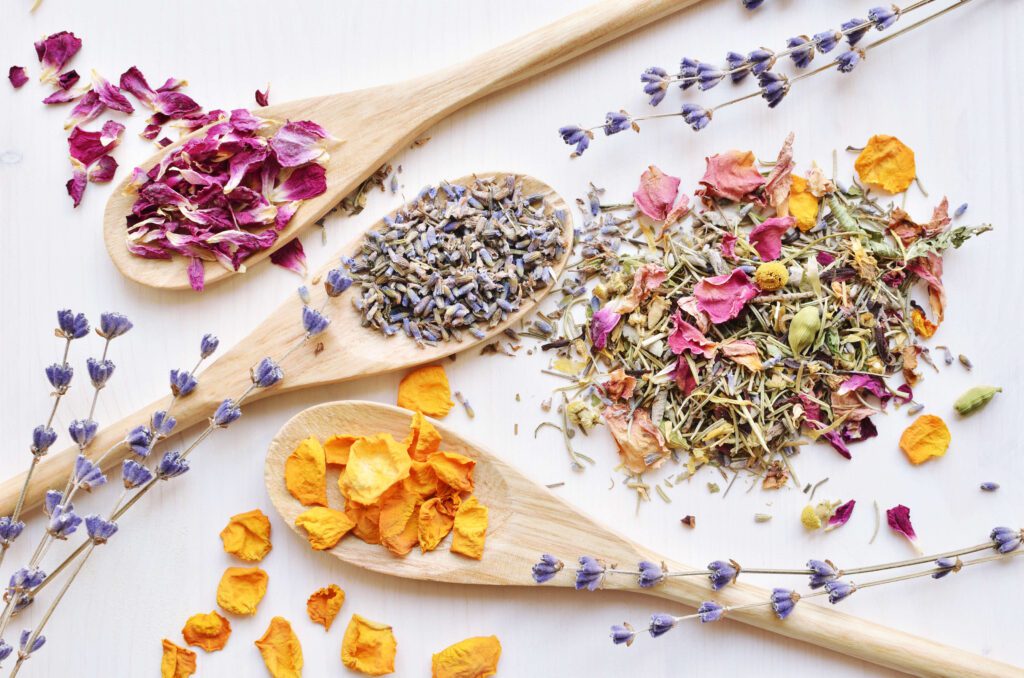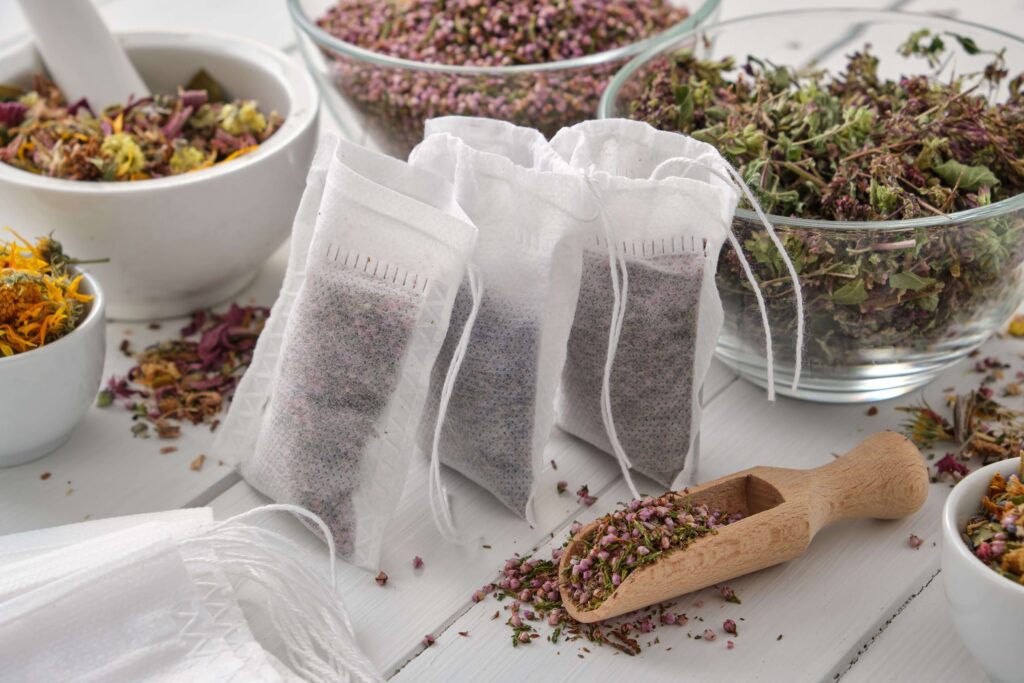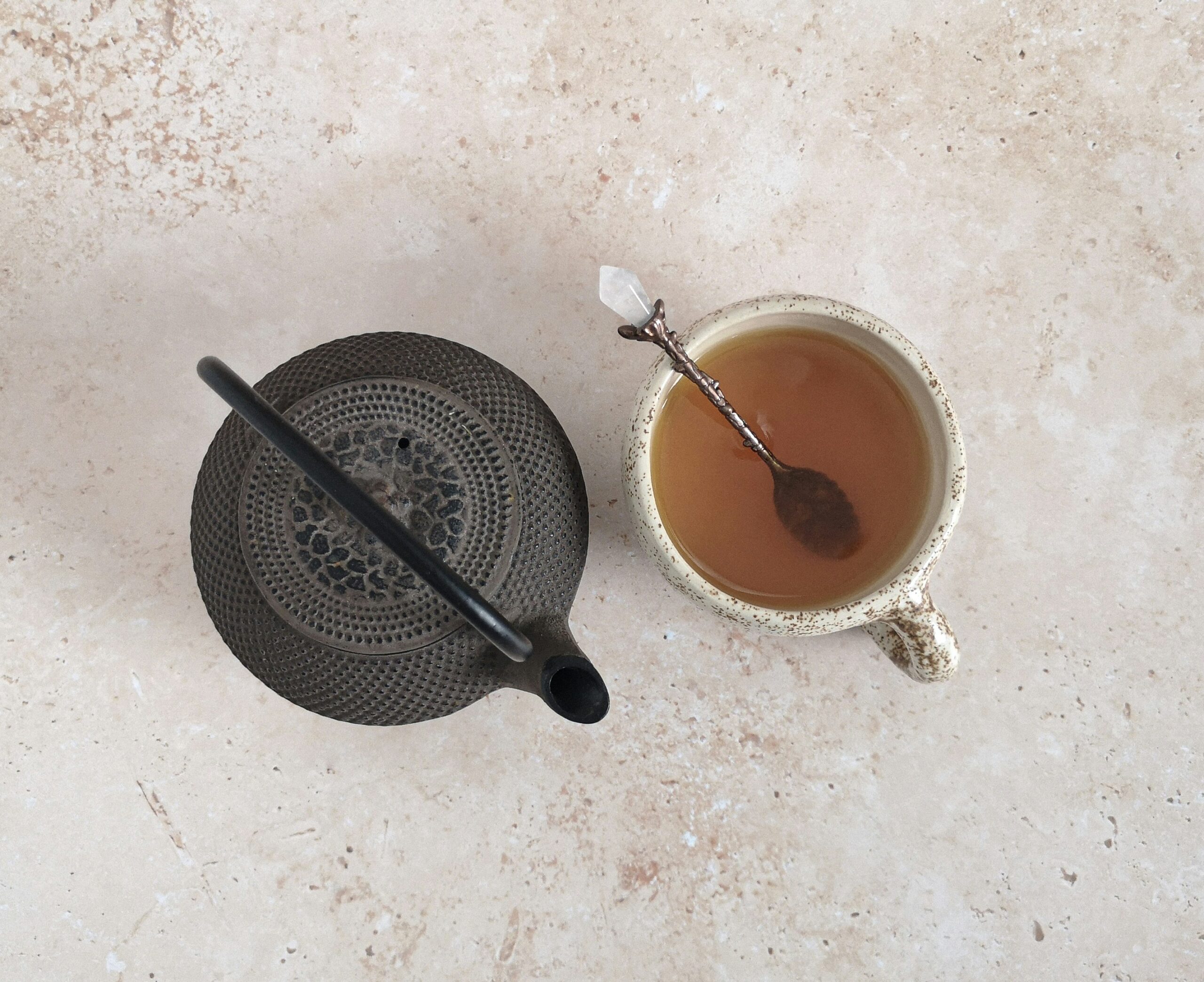
If you’re looking for a natural way to combat the flu, herbal tea may be the answer you’re looking for. Herbal teas are made from a variety of plants and herbs that have been used for centuries to boost the immune system and fight off illnesses. Unlike traditional tea, you can find herbal tea is caffeine-free and can be enjoyed any time of the day.
Understanding Herbal Tea Benefits – what are the benefits of herbal teas?
Herbal tea has many benefits for the body, including its ability to boost the immune system and fight off infections. Many herbs used in herbal tea have anti-inflammatory and antibacterial properties, making them effective in treating colds and flu.
Some popular herbs used in flu-fighting herbal teas include ginger, echinacea, and elderberry.
How to make your Flu-Fighting Herbal Tea Recipe?
Making your own flu-fighting herbal tea is easy and can be done with just a few simple ingredients. Start by choosing your base herb, such as chamomile or peppermint. Then, add in other herbs and spices that have flu-fighting properties, like ginger, cinnamon, and cloves. Steep the herbs in hot water for several minutes, strain, and enjoy.
We cover more later in this article.
Key Takeaways
- Herbal tea can boost the immune system and fight off infections.
- Popular herbs used in flu-fighting herbal teas include ginger, echinacea, and elderberry.
- Making your own flu-fighting herbal tea is easy and can be done with just a few simple ingredients.
Today we’re answering…
- What are the benefits of herbal tea? What is the best herb for flu?
- How to make tea for the flu?
- Frequently asked questions
What are the benefits of herbal tea? What is the best herb for flu?
When it comes to combating the flu, herbal tea can be your BFF.
Herbal tea is a natural home remedy that can help alleviate flu symptoms and boost your immune system.
In this section, we will explore the many benefits of herbal tea and how to select quality ingredients for your recipe.
1. Boosting the Immune System
Herbal tea can help boost your immune system, which is essential for fighting off the flu.
Some herbs and spices known to boost the immune system include echinacea, elderberry, and citrus fruit.
These ingredients are rich in antioxidants and vitamin C, which can help strengthen your immune system and protect your body from harmful viruses.
2. Alleviating Flu Symptoms
Herbal tea can also help alleviate flu symptoms such as cough, sore throat, fever, aches, and congestion.
Some herbs and spices that are known to alleviate flu symptoms include honey, lemon, ginger, cinnamon, and cayenne.
These ingredients are antiviral, and anti-inflammatory, and can help soothe your throat and reduce congestion.
3. Selecting Quality Ingredients
When selecting ingredients for your herbal tea recipe, it is important to choose high-quality herbs and spices.
Look for organic herbs that are free of pesticides and other harmful chemicals.
You can also consider using raw honey, which is rich in antioxidants and has antibacterial properties. Some other high-quality ingredients to consider include marshmallow root, slippery elm, and licorice root.
4. Herbs and Spices for Respiratory Health
Herbs and spices can also help support respiratory health, which is essential for combating the flu.
Some herbs and spices that are known to support respiratory health include mullein, sage, and peppermint.
These ingredients are expectorants, which means they can help loosen mucus and promote coughing.
5. Natural Pain and Nausea Relief
Herbal tea can also provide natural pain and nausea relief.
Some herbs and spices that are known to have analgesic and anti-inflammatory properties include turmeric, ginger, and cinnamon.
These ingredients can help reduce pain and inflammation in the body. Some other herbs and spices that are known to help alleviate nausea include peppermint and ginger.
6. Enhancing Circulation and Digestion
Herbal tea can also help enhance circulation and digestion, which can help improve overall health and wellbeing.
Some herbs and spices that are known to enhance circulation and digestion include cayenne, ginger, and turmeric.
These ingredients are rich in flavonoids, antioxidants, and other nutrients that can help improve blood flow and promote healthy digestion.
7. The Role of Antioxidants and Vitamins
Herbal tea is also rich in antioxidants and vitamins, which can help protect your body from harmful free radicals and promote overall health and wellbeing.
Some herbs and spices that are particularly rich in antioxidants and vitamins include citrus fruit, turmeric, and cinnamon.
8. Herbal Tea Preparation Techniques
When preparing herbal tea, it is important to use the right techniques to ensure that you get the most out of your ingredients. Some popular herbal tea preparation techniques include decoction, infusion, and steeping.
Decoction involves boiling herbs and spices in water, while infusion involves steeping herbs and spices in hot water. Steeping involves pouring hot water over herbs and spices and letting them steep for a few minutes.
By understanding the many benefits of herbal tea and selecting quality ingredients, you can create a powerful recipe for combating the flu and promoting overall health and well-being.
How to make herbal tea for the flu?
When cold and flu season hits, it’s important to have natural remedies on hand to help boost your immune system and fight off illness. One of the most effective and enjoyable ways to do this is by crafting your own flu-fighting herbal tea recipe. With a few simple ingredients, you can create a delicious and healthful beverage that will help you feel better in no time.

1. Crafting the Base Blend
To start, you’ll want to choose a base blend of herbs that will form the foundation of your tea. Some great options for this include echinacea, elderberry, and vitamin C-rich rose hips. You can also use a combination of herbs like oatstraw, hibiscus, and spearmint leaf to create a flavorful and soothing base.
2. Incorporating Immune-Boosting Additions
Once you have your base blend, you can start adding ingredients that will help boost your immune system and fight off illness. Some great options for this include ginger, cayenne pepper, and cloves, which are all known for their immune-boosting properties. You can also add lemon juice, which is high in vitamin C, and raw honey, which has antibacterial properties and can help soothe a sore throat.
3. Soothing Additions for Throat and Cough
If you’re dealing with a sore throat or cough, there are a few herbs you can add to your tea to help soothe these symptoms. Marshmallow root and mullein leaf are both great options for soothing a spastic cough, while sage and cinnamon can help ease a sore throat.
4. Flavor Enhancements and Sweeteners
To make your tea taste great, you can add a variety of flavour enhancements and sweeteners. Stevia is a natural sweetener that won’t spike your blood sugar, while honey and raw sugar can add a touch of sweetness and help soothe a sore throat. You can also add spices like cinnamon and cloves to give your tea a warm, cozy flavour.
5. Final Touches and Serving Suggestions
To finish off your flu-fighting herbal tea recipe, simply add hot water to your blend of herbs and let steep for 5-10 minutes. Strain and serve hot, or let cool and serve over ice for a refreshing iced tea. You can also add a slice of lemon or a dash of cayenne pepper for an extra boost of flavour and immune-boosting power. Sip on your tea throughout the day to help fight off illness and keep your immune system strong.
RELATED
“The So-Called Healing Power Of Herbal Tea – An Introduction”
Frequently Asked Questions
What ingredients are needed for a homemade tea to relieve flu symptoms?
To make a homemade tea that can help relieve flu symptoms, you will need some basic ingredients such as water, honey, and lemon juice. In addition, you will need to add some herbs that can help boost your immune system and alleviate the symptoms of the flu.
What are some effective herbs to include in a tea for cold and flu relief?
Many herbs can help alleviate the symptoms of the flu and boost your immune system. Some of the most effective herbs include ginger, echinacea, elderberry, and peppermint. These herbs can help reduce inflammation, relieve congestion, and boost your immune system.
How do you prepare an immune-boosting herbal tea at home?
To prepare an immune-boosting herbal tea at home, you will need to boil water and add the herbs of your choice. Let the herbs steep for a few minutes and then strain the tea. You can add honey, lemon juice, or other natural sweeteners to taste. Drink the tea while it is still warm to get the most benefits.
What are natural remedies for combating flu symptoms with herbal tea?
In addition to herbal tea, many other natural remedies can help combat flu symptoms. Some of these remedies include getting plenty of rest, staying hydrated, and eating a healthy diet. You can also try using a humidifier, taking a hot shower, or using a saline nasal spray to relieve congestion.
RELATED: Flu Got You Down? Try These Herbal Remedies For The Flu, A Quick Relief
Which homemade drink can help alleviate the common cold and flu?
In addition to herbal tea, another homemade drink that can help alleviate the symptoms of the common cold and flu is bone broth. Bone broth is rich in nutrients that can help boost your immune system and reduce inflammation. You can also add herbs and spices to your bone broth for added flavour and benefits.



Comments +